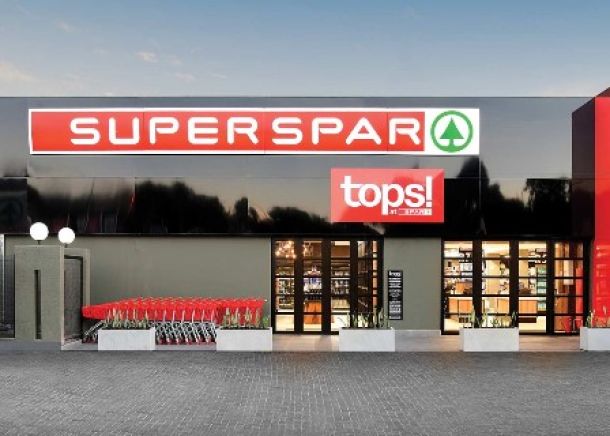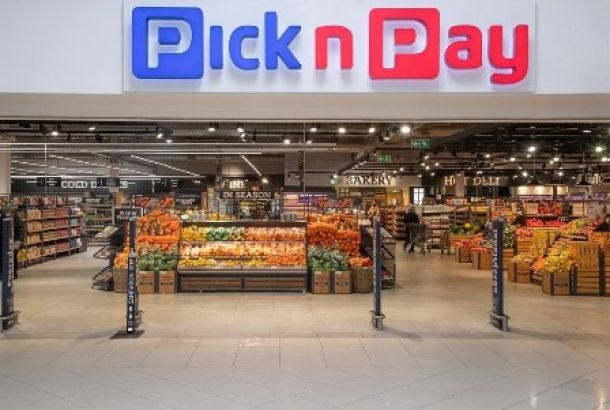Wiese sees ray of light after losing billions on Steinhoff
Christo Wiese lost more than $2 billion when Steinhoff International Holdings NV plunged following the discovery of accounting irregularities. Luckily for him, he’s still the biggest investor in Shoprite Holdings Ltd, an African supermarket giant whose shares are at a record high.
Shoprite, which announced higher profit this week, advanced about 40 percent in the past year, softening Wiese’s financial blow from the Steinhoff collapse and providing him with an easy-to-sell asset when he needed cash. The $1.9 billion stake now makes up the majority of his depleted $2.5 billion fortune, according to the Bloomberg Billionaires Index.
Africa’s largest grocer gave an upbeat outlook and raised the dividend. The shares jumped as much as 6.4% on Tuesday. The performance provided Wiese with a diversion from the questions swirling around Steinhoff, which still hasn’t explained the nature of the potential wrongdoing it disclosed in early December or how deep it goes.
Shoprite is “a particular ray of light,” Wiese, who chairs its board of directors, said in an interview on the sidelines of the retailer’s results presentation on Tuesday. “It’s been a long and happy association.”
His ties with Steinhoff have been less pleasant of late for Wiese, who stepped down as chairman shortly after the scandal erupted. His stake in the owner of Mattress Firm in the US, Conforama in France and Britain’s Poundland shrank from about 21 percent to about 6 percent after banks sold stock he’d used to secure margin loans.
Wiese unloaded shares in Aspen Pharmacare Holdings and Brait SE, as well as Shoprite, to raise cash.
It was a sudden fall from grace for someone who was admired for a golden touch that made him one of South Africa’s richest men.
“It must be hard to be so unceremoniously dumped” as chairman, said Graeme Korner, a fund manager at Johannesburg-based Korner Perspective.
“That Wiese was there at the center of Steinhoff gave many a sense of comfort.”
Wiese appeared frustrated last month when lawmakers in Cape Town asked him how he and the board had missed the alleged fraud. He pointed the finger at management and the “handsomely” paid accountants who failed to spot problems until late last year, an argument he reiterated in an interview with Bloomberg.
“In any large business, a board has to rely on its executives and on the structures that are in place,” Wiese said on Feb. 12.
“I just don’t know how you run a business otherwise. I mean, it is a hugely complex company.”
The 76-year-old added to that complexity in 2014, when he exchanged Pepkor Holdings, the South African clothing chain he’d spent his life building, for Steinhoff shares in a $5.7 billion deal. In a single stroke he became the largest shareholder and assumed the chairman’s role a few months later.
His son Jacob also joined the board, and has since stepped down.
Running the company as chief executive officer was Markus Jooste, who Wiese had known since 1982 when the younger man worked as a clerk at a firm auditing one of his companies. Jooste resigned the day Steinhoff announced the accounting problems. The shares have since dropped by more than 85%.
In addition to Deloitte LLP, which audited its books for more than a decade, Steinhoff has appointed PwC to probe its accounts.
Wiese joined Pepkor in 1967, after graduating with a law degree from Stellenbosch University. The company had started two years earlier as a single shop in Upington, the remote town where he was born.
The budget clothing brand bought Shoprite in 1979, only to separately list the food retailer seven years later. Pepkor kept growing through acquisitions, taking control of retail chains Smart Group Holdings, Cashbuild, Checkers and Stuttafords in 1991, virtually doubling the size of the group overnight.
That same year it made its first overseas move, with the opening of a Your More Store outlet in Scotland.
Wiese didn’t escape controversy over the half century he built his empire. He had about 700,000 pounds ($977,000) confiscated when he tried to take the cash in his luggage from London to Luxembourg in 2009, according to press reports.
The money was eventually returned with interest after a legal case. He also quarreled with South Africa’s revenue service over what the government claimed were unpaid taxes.
Then there was Wiese’s decision to back Jooste, a man he described at the time of the Pepkor deal with Steinhoff as his friend.
“Wiese was never a hands-on person,” said Asief Mohamed, chief investment officer at Aeon Investment Management. “Instead, the people that made him money he rewarded very, very well.”
He had been working on yet another deal when the scandal broke—combining Steinhoff’s African operations with Shoprite to consolidate his various retail holdings. That plan has been abandoned, he said Tuesday.
News Category
- International retailers
- On the move
- Awards and achievements
- Legislation
- Wine and liquor
- Africa
- Going green
- Supplier news
- Research tools
- Retailer trading results
- Supply chain
- Innovation and technology
- Economic factors
- Crime and security
- Store Openings
- Marketing and Promotions
- Social Responsibility
- Brand Press Office
Related Articles

Pick n Pay plunges 16% on JSE as stock adjusts ...

SPAR suffering from a hangover

Pain for Pick n Pay

Pick n Pay disaster


